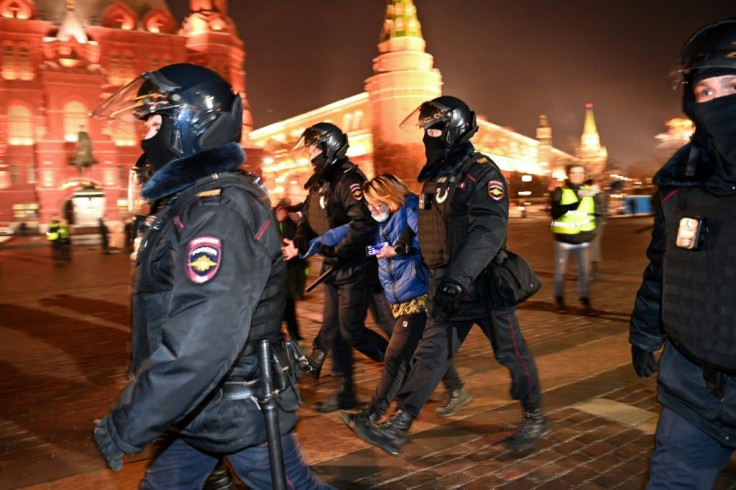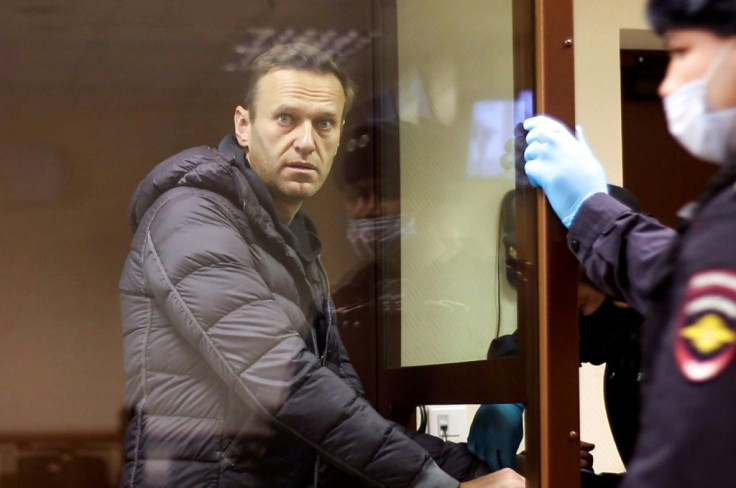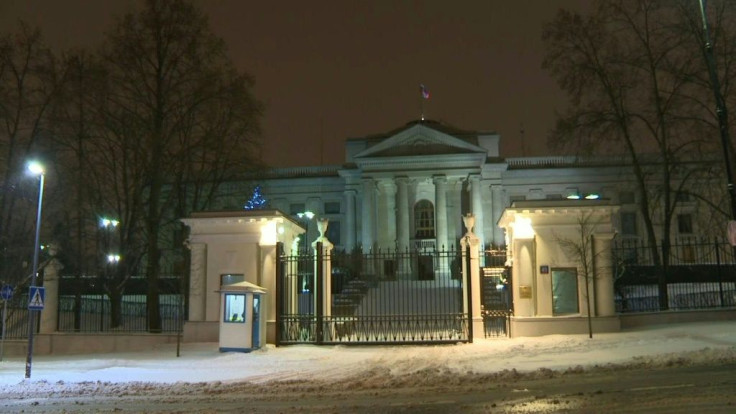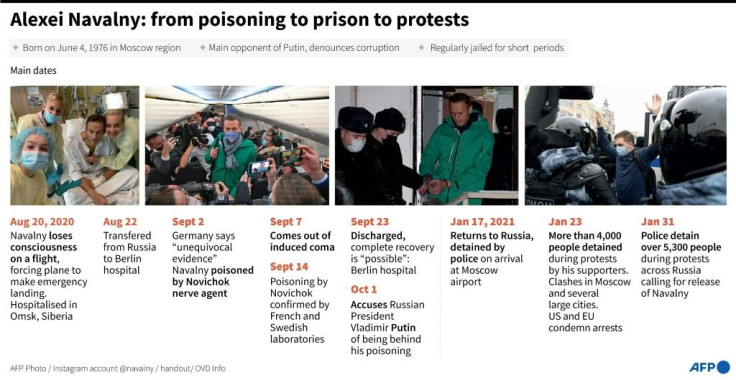EU Envoy Toughens Sanctions Stance After Difficult Moscow Trip
EU foreign policy chief Josep Borrell said Tuesday he will propose the bloc imposes sanctions on Russia, as he blasted the Kremlin's "merciless" crackdown on its top critic Alexei Navalny.
The former Spanish minister addressed lawmakers after a chastening visit to Russia last week, during which the Kremlin announced the expulsion of three European diplomats.
"It will be for the member states to decide the next step, but yes this could include sanctions and I will put forward concrete proposals," Borrell told the European Parliament.

A number of eastern European countries and Navalny's allies have called for punitive measures over the jailing of the anti-corruption campaigner and crackdown on protesters.
Russia's foreign ministry labelled Navalny's team "traitors" after they urged sanctions on oligarchs, bankers and media bosses close to President Vladimir Putin.
EU foreign ministers are set to discuss their next moves on Russia at a meeting on February 22.
"Borrell has taken a political risk in going to Moscow," a European diplomat told AFP.

"If you get paid back like this, even the forces who are more sceptical towards sanctions lose interest."
Despite opposition from some capitals, Borrell insisted on visiting Moscow to confront the Kremlin over Navalny and sound it out over cooperation on other issues.
"I had no illusion before the visit, I am even more worried after," Borrell told lawmakers.
"One thing became clear, there is no intention on the Russian side to engage in a constructive discussion."

Borrell said the Kremlin left "no opening for democratic rule of law" as it crushed any moves to create an alternative to President Vladimir Putin.
"The Russian authorities have shown in the Navalny affair that they are merciless in stifling any such attempts."
Borrell drew flak for his performance during the visit -- the first by a top EU envoy to Moscow since 2017 -- as he failed to counter a slew of criticism from counterpart Sergei Lavrov at a press conference.
Dozens of European lawmakers signed a letter calling for his resignation over the "humiliating" trip.

Russia's economy has been squeezed by a series of Western penalties slapped on Moscow by Washington and Brussels following the annexation of the Crimean peninsula from Ukraine in 2014.
The bloc hit six senior Russian officials with asset freezes and visa bans in October over the poisoning of Navalny with a nerve agent.
Navalny has accused Putin of ordering the attack -- something the Kremlin has repeatedly denied.
Putin's most prominent domestic opponent was sentenced to almost three years in jail after returning to Russia last month following treatment in Germany.
His jailing sparked widespread protests across Russia that have seen at least 10,000 people detained.
Navalny's team has postponed mass rallies until the spring or summer in the wake of the arrests, but is looking to keep up the pressure on the Kremlin.
Right-hand man Leonid Volkov called on Navalny supporters to stage courtyard protests on Valentine's Day this Sunday, lighting their phone flashlights for 15 minutes.
"Love is stronger than fear," he wrote on Facebook.
Navalny's supporters have called on the EU to sanction the money men they accuse of protecting Putin's wealth and financing his regime.
The Kremlin has warned it could back legislation that would hold those calling for sanctions against Russia criminally liable.
European diplomats have said if sanctions do come they will likely just target officials directly involved in the clampdown on the opposition.
EU chief Charles Michel on Tuesday announced he was heading to Ukraine and Georgia in March at a meeting with Ukrainian Prime Minister Denys Shmyhal.
"The EU is united and firm in its position on Ukraine's sovereignty and territorial integrity," Michel tweeted.
© Copyright AFP {{Year}}. All rights reserved.





















